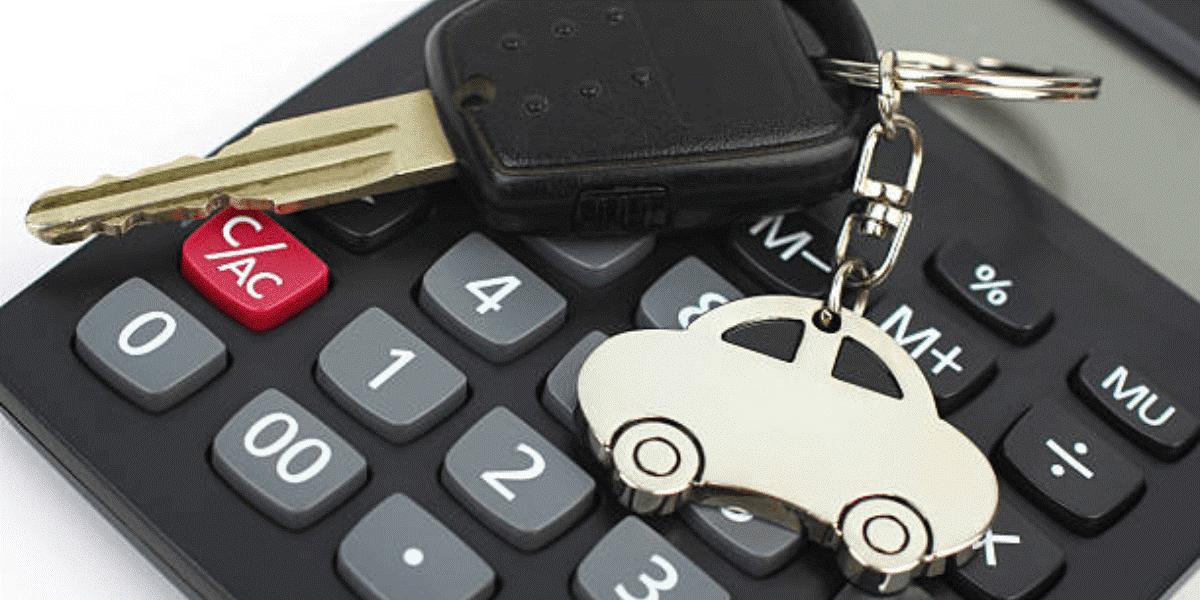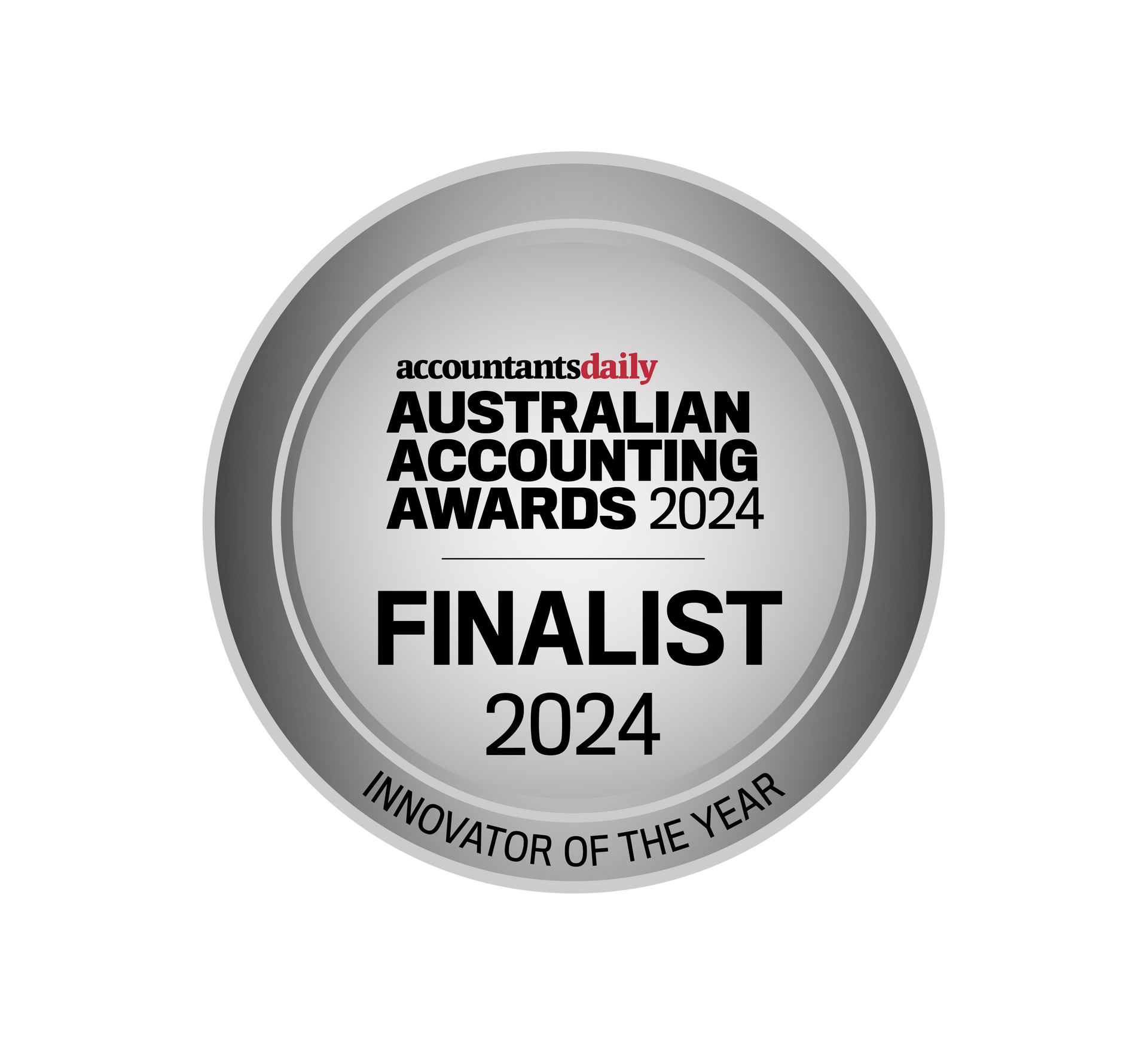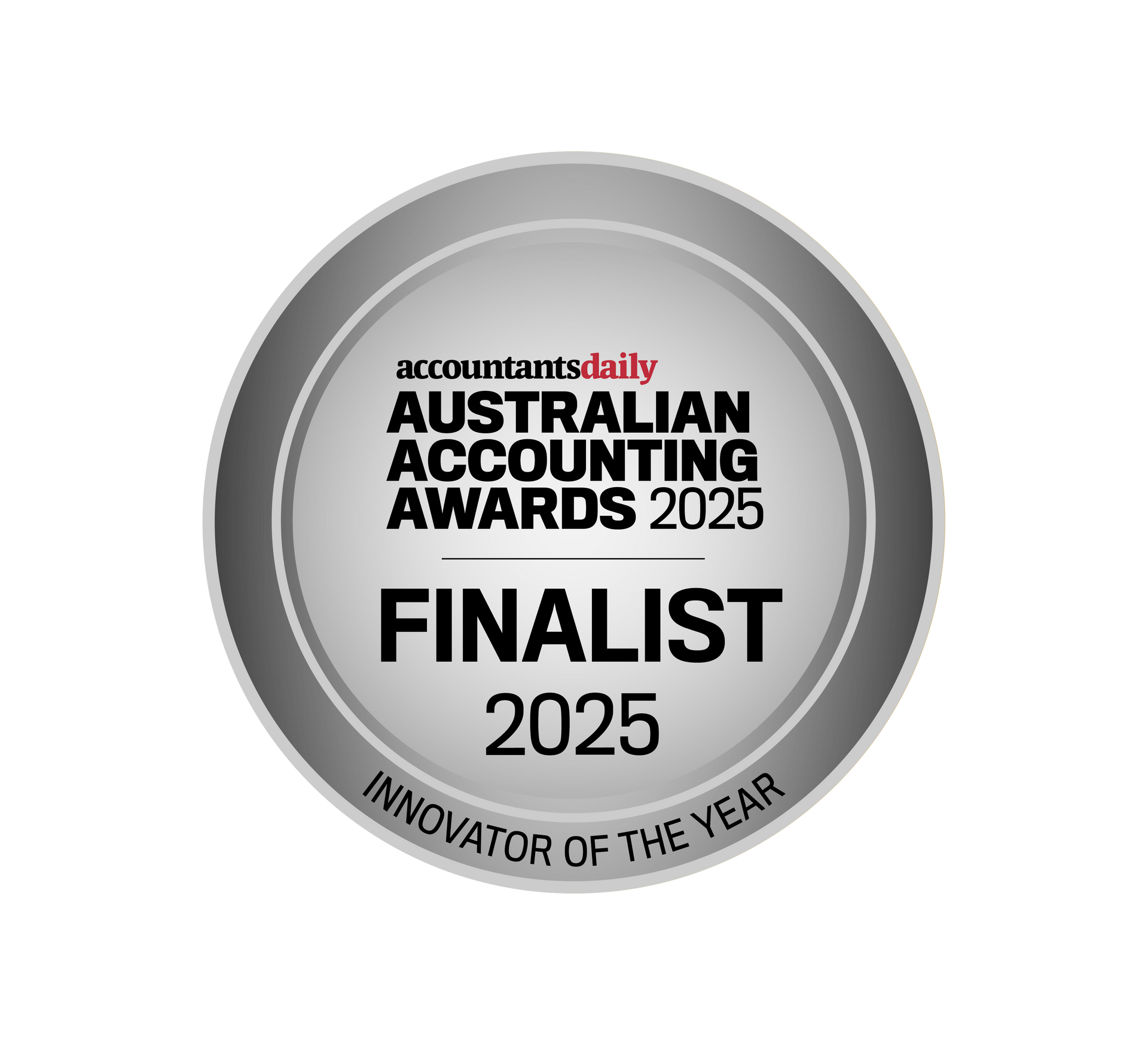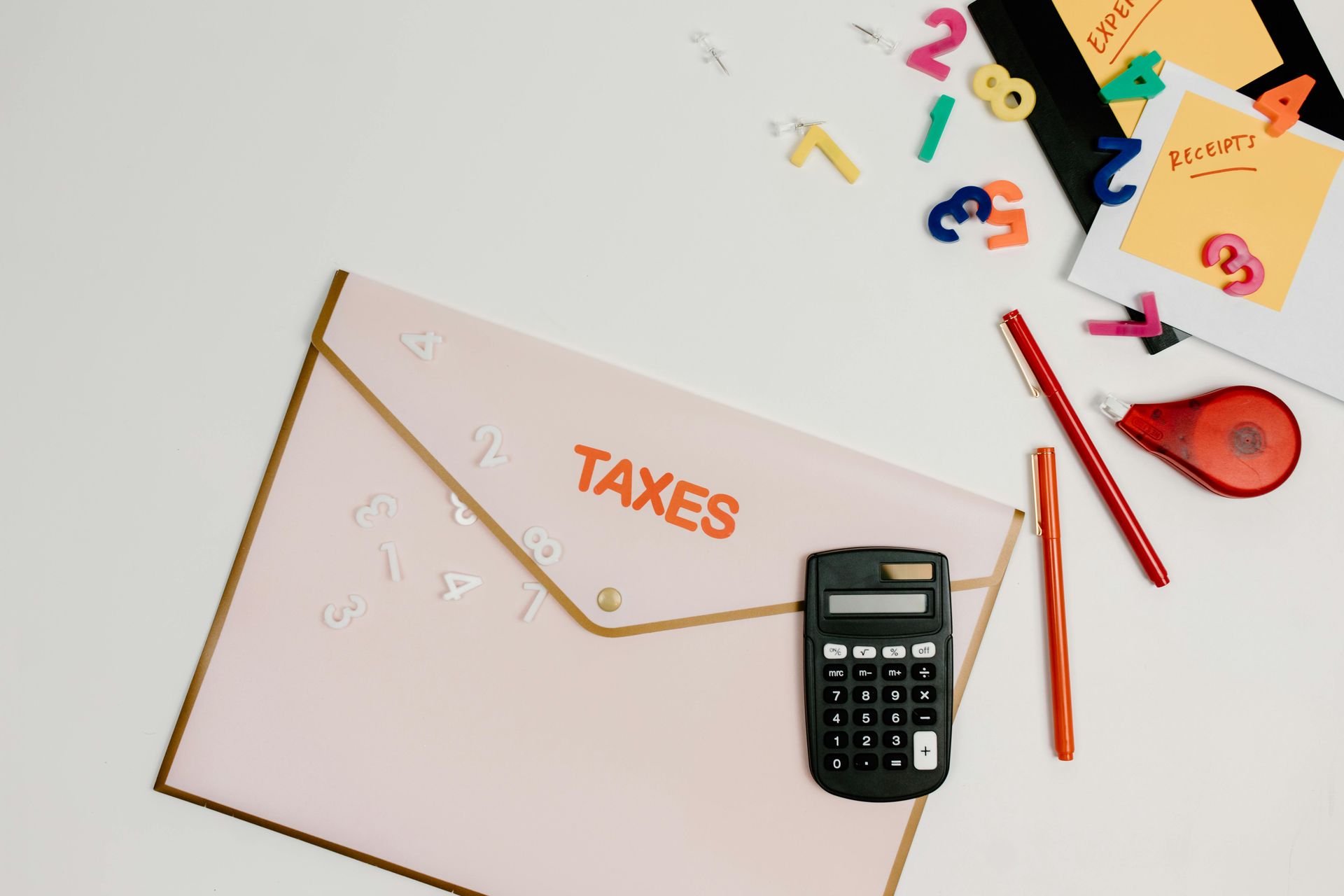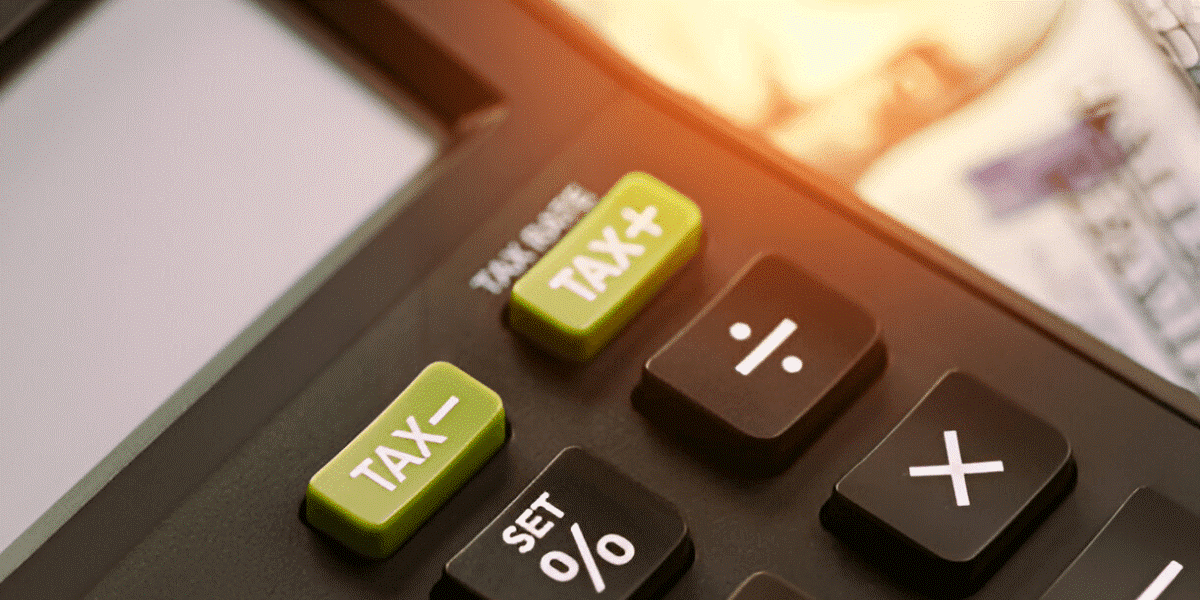DEDUCTIONS YOU CAN CLAIM ON YOUR TAX RETURNS THIS FINANCIAL YEAR 2024
Ever feel like the taxman takes a bigger bite out of your paycheck than they deserve? Well, what if I told you there were ways to fight back and keep more of your hard-earned money? That's right, by understanding tax deductions for the 2024 financial year, you can take control and optimise your tax return.
This guide will help you reveal the different categories of cars, home office, and other deductions you can claim to sway you through the tax season with confidence!
In this article we will talk about the following deductions:-
● Cars, Transport, and Travel
● Motor Vehicle and Car Expenses
● Taxi, Rideshare, and Public Transport Expenses
● Overnight Travel Expenses and Allowances
● Removal and Relocation Costs
● Workwear and Personal Items for the Office
● Personal Grooming, Health, and Fitness
● Memberships, Accreditations, Fees, and Commissions
● Work Essentials and Technology
● Home-Based Work Expenditures
● Work Tools and Computers
● Self-Education Expenses
● Donations
● Cost of Managing Tax Affairs
Cars, Transport, and Travel
When it comes to claiming trips on your tax returns, it's essential to differentiate between those incurred while working and those related to commuting.
You can claim for:
● Performing work duties or attending work-related events away from your regular workplace.
● Travelling between separate places of employment.
● Going from your regular workplace to an alternative work location and back.
● You can't claim for trips between home and work, except in specific cases.
Regular commuting from home to your workplace and back is typically not eligible for deductions unless:
● Your home is the base of employment
● Transporting heavy equipment
To claim a tax deduction for transport expenses of a work-related trip:
● You must have personally spent the money and not been reimbursed.
● You need to maintain records of your expenses to claim a deduction.
If you travel overnight for work:
● You can usually claim deductions for flights, accommodation, meals, and incidentals.
If your travel is partly personal:
● You can only claim deductions for transport expenses directly related to work duties.
Car Expenses You Own or Lease
If you own or lease a car, certain expenses associated with its operation and maintenance can be claimed as deductions.
Claiming a Deduction for Car Expenses:
To claim a deduction for car expenses:
● Your vehicle must stand on the definition of a car.
● You must own or lease the car, excluding certain arrangements like salary sacrifice or novated leases.
● Expenses must be for work-related trips, excluding home-to-work travel in most cases.
● You need to have personally spent the money without being reimbursed, with proper records.
● Different rules apply if it's not your car or not a car.
● Only the work-related portion is deductible if your travel is partly private.
● Claim the deduction in your income tax return as a work-related car expense.
● If you receive a car expense allowance from your employer, it's taxable income and must be declared in your tax return.
Definition of a Car:
The vehicle must meet the criteria of being a car for tax purposes.
- A car is defined as a motor vehicle with a load of less than 1 tonne and capacity for fewer than 9 passengers, including the driver.
- Motorcycles and similar vehicles are not considered cars.
- If the vehicle doesn't meet this definition, you must use a different approach to
claim work-related expenses.
You must own or lease the car:
To claim car expenses:
● Must own, lease, or hire under hire-purchase.
● Cannot claim if car used under a salary sacrifice or novated lease.
● Additional expenses that you can claim are parking and tolls.
● If using a family member's car under a private arrangement, expenses can be claimed as though it's your own.
If you don't own, lease, or have a private arrangement, you claim your work-related expenses using the approach for a
vehicle that isn't yours.
How To Calculate Your Car Expense Deductions and Keep Records?:
Two methods for calculating car expense deductions are cents per kilometre and Logbook.
Cents per kilometre:
● Multiply work-related kilometres by the rate per kilometre.
● Maximum claim of 5,000 work-related kilometres per car.
● No need for receipts, but records are required to show ownership and work-related kilometres.
Logbook:
● Keep a logbook for a minimum of 12 weeks.
● Include journey details and odometer readings.
● The logbook is valid for approximately 5 years.
● Keep receipts for all car expenses.
● Calculate deduction using the logbook.
Expenses for a Car That Isn’t Yours or Isn't a Car
In cases where you utilise a vehicle that you don't own or if the vehicle doesn't meet the definition of a car, specific deduction rules apply.
Claiming a Deduction for Vehicle Expenses:
This includes scenarios involving someone else's vehicle or non-car vehicles like motorcycles and trucks.
Claimable expenses must be for work-related trips, excluding home-to-work travel in most cases. Other things to keep in mind:
● You must have personally spent the money and keep records.
● Only claim the work-related portion if travel is partly private.
● Claim as work-related travel expense on your tax return.
● If the vehicle is a car and belongs to you, different calculations and claiming methods apply.
● Employer vehicle expense allowance is taxable income declared in the tax return.
Someone else's vehicle:
A vehicle not owned by you, such as your employer's.
● You can't claim running costs if using a car under a salary sacrifice or novated lease, but additional expenses like parking and tolls for work use can be claimed.
A vehicle that isn't a car:
Non-car vehicles include motorcycles, scooters, trucks, and heavy vehicles.
Criteria for non-car vehicles:
● Carrying capacity greater than 1 tonne.
● Including the driver, carrying capacity of 9 or more passengers.
Calculate Deduction for Vehicle Expenses:
To claim a deduction for a non-owned or non-car vehicle:
● Calculate actual expenses for work-related travel.
● Claim as work-related travel expense in tax return, not as a work-related car expense.
● Cents per kilometre and logbook methods cannot be used.
● Keeping a document similar to a logbook can help calculate work-related use percentages for expense calculation, though it's not mandatory.
Keeping Records of Vehicle Expenses:
Detailed records must be maintained to support your claims.
Keep records of:
● How you calculated work-related vehicle use.
● Original receipts for all vehicle expenses.
● Details of decline in value calculation, including effective life and method.
Expenses for Parking, Tolls, Accidents, Licenses, and Fines
Additional expenses related to vehicle usage, such as parking fees, tolls, and fines, may also be eligible for deductions.
Parking Fees and Tolls:
Expenses incurred for parking and tolls during work-related travel can be claimed.
Damage to a Third-Party Motor Vehicle:
If you use your own vehicle for work and cause damage to another vehicle:
● You can claim deductions for repairing your vehicle.
● You may also be liable for damages to the other vehicle, which could be claimed as well.
Expenses are incurred when paid or liable to pay.
Driver’s License and Fines:
Certain license expenses might qualify for deductions, like a special demand of employment to have a heavy vehicle permit.
Taxi, Rideshare, and Public Transport Expenses
Car Expenses You Own or Lease
If you own or lease a car, certain expenses associated with its operation and maintenance can be claimed as deductions.
Claiming a Deduction for Car Expenses:
To claim a deduction for car expenses:
● Your vehicle must stand on the definition of a car.
● You must own or lease the car, excluding certain arrangements like salary sacrifice or novated leases.
● Expenses must be for work-related trips, excluding home-to-work travel in most cases.
● You need to have personally spent the money without being reimbursed, with proper records.
● Different rules apply if it's not your car or not a car.
● Only the work-related portion is deductible if your travel is partly private.
● Claim the deduction in your income tax return as a work-related car expense.
● If you receive a car expense allowance from your employer, it's taxable income and must be declared in your tax return.
Definition of a Car:
The vehicle must meet the criteria of being a car for tax purposes.
- A car is defined as a motor vehicle with a load of less than 1 tonne and capacity for fewer than 9 passengers, including the driver.
- Motorcycles and similar vehicles are not considered cars.
- If the vehicle doesn't meet this definition, you must use a different approach to
claim work-related expenses.
You must own or lease the car:
To claim car expenses:
● Must own, lease, or hire under hire-purchase.
● Cannot claim if car used under a salary sacrifice or novated lease.
● Additional expenses that you can claim are parking and tolls.
● If using a family member's car under a private arrangement, expenses can be claimed as though it's your own.
If you don't own, lease, or have a private arrangement, you claim your work-related expenses using the approach for a
vehicle that isn't yours.
How To Calculate Your Car Expense Deductions and Keep Records?:
Two methods for calculating car expense deductions are cents per kilometre and Logbook.
Cents per kilometre:
● Multiply work-related kilometres by the rate per kilometre.
● Maximum claim of 5,000 work-related kilometres per car.
● No need for receipts, but records are required to show ownership and work-related kilometres.
Logbook:
● Keep a logbook for a minimum of 12 weeks.
● Include journey details and odometer readings.
● The logbook is valid for approximately 5 years.
● Keep receipts for all car expenses.
● Calculate deduction using the logbook.
Expenses for a Car That Isn’t Yours or Isn't a Car
In cases where you utilise a vehicle that you don't own or if the vehicle doesn't meet the definition of a car, specific deduction rules apply.
Claiming a Deduction for Vehicle Expenses:
This includes scenarios involving someone else's vehicle or non-car vehicles like motorcycles and trucks.
Claimable expenses must be for work-related trips, excluding home-to-work travel in most cases. Other things to keep in mind:
● You must have personally spent the money and keep records.
● Only claim the work-related portion if travel is partly private.
● Claim as work-related travel expense on your tax return.
● If the vehicle is a car and belongs to you, different calculations and claiming methods apply.
● Employer vehicle expense allowance is taxable income declared in the tax return.
Someone else's vehicle:
A vehicle not owned by you, such as your employer's.
● You can't claim running costs if using a car under a salary sacrifice or novated lease, but additional expenses like parking and tolls for work use can be claimed.
A vehicle that isn't a car:
Non-car vehicles include motorcycles, scooters, trucks, and heavy vehicles.
Criteria for non-car vehicles:
● Carrying capacity greater than 1 tonne.
● Including the driver, carrying capacity of 9 or more passengers.
Calculate Deduction for Vehicle Expenses:
To claim a deduction for a non-owned or non-car vehicle:
● Calculate actual expenses for work-related travel.
● Claim as work-related travel expense in tax return, not as a work-related car expense.
● Cents per kilometre and logbook methods cannot be used.
● Keeping a document similar to a logbook can help calculate work-related use percentages for expense calculation, though it's not mandatory.
Keeping Records of Vehicle Expenses:
Detailed records must be maintained to support your claims.
Keep records of:
● How you calculated work-related vehicle use.
● Original receipts for all vehicle expenses.
● Details of decline in value calculation, including effective life and method.
Expenses for Parking, Tolls, Accidents, Licenses, and Fines
Additional expenses related to vehicle usage, such as parking fees, tolls, and fines, may also be eligible for deductions.
Parking Fees and Tolls:
Expenses incurred for parking and tolls during work-related travel can be claimed.
Damage to a Third-Party Motor Vehicle:
If you use your own vehicle for work and cause damage to another vehicle:
● You can claim deductions for repairing your vehicle.
● You may also be liable for damages to the other vehicle, which could be claimed as well.
Expenses are incurred when paid or liable to pay.
Driver’s License and Fines:
Certain license expenses might qualify for deductions, like a special demand of employment to have a heavy vehicle permit.
Taxi, Rideshare, and Public Transport Expenses
For individuals who rely on alternative modes of transportation for work-related purposes, expenses incurred on taxis, rideshares, and public transport can be claimed as deductions.
Claiming a deduction for transport expenses:
To claim a tax deduction for the expenses of transport:
● Expenses must be work-related.
● Claimable for trips between workplaces or to perform work duties, but not home-to-work in most cases.
● You must have personally spent the money and kept records.
● Only the work-related portion can be claimed if travel is partly private.
● Claim the deduction as a work-related travel expense in your income.
Types of Transport Expenses You Can Claim:
This encompasses fares paid for taxis, rideshares, buses, trains, boats, flights, and other public transport services, along with road and bridge toll and parking fees.
Keeping Records for Transport Expenses:
Proper documentation is essential to support your claims.
Records to keep for transport expenses include:
● Explanation of the work-related nature of travel.
● Details of travel movements and activities.
● Receipts for fares, tolls, parking, and car-hire fees.
If you receive a transport expense allowance from your employer, declare it as income in your tax return.
Award Transport Payments
Understanding the tax implications of award transport payments is crucial for accurate reporting of income and deductions.
What Is an Award Transport Payment?:
An award transport payment has been given under an industrial instrument in effect since 29 October 1986.
- It covers transport costs incurred for work duties, including allowances or reimbursements.
- Transport expenses can include car usage, ride-sharing, flights, trains, taxis, boats, or buses.
- To verify if you received such a payment, inquire with your employer or union.
Income to Declare:
If you receive an award transport payment, you must include it in your tax returns.
Exception from Keeping Written Evidence and Travel Records:
Usually, you need written evidence and a travel diary for work-related transport expenses.
Exception: No need for evidence or diary if:
● You receive an award transport payment.
● Your deductible expenses are covered by this payment and are less than the award amount from 29 October 1986.
- This exception doesn't automatically qualify you for a deduction; you still need to incur deductible expenses.
- If claiming more than the award amount, written evidence and a travel diary are required for the entire claim.
How to Claim a Deduction:
Understanding the process of claiming deductions for award transport payments is essential.
Claiming a deduction for transport expenses:
● Must be incurred while performing employment duties.
● Expenses can include driving one's own car or other forms of transport.
If claiming within the award amount:
● Claim as work-related travel expenses without the need for cents per kilometre or logbook methods.
If claiming additional car expenses:
Option 1: Claim part within the award amount as work-related travel expenses, remainder based on written records.
Option 2: Claim all car expenses based on written records.
For all car expense claims:
● Use cents per kilometre or a logbook.
● Keep necessary records and evidence.
Overnight Travel Expenses and Allowances
For individuals required to travel overnight for work-related purposes, certain expenses and allowances may be claimable.
Eligibility to claim travel:
You can claim travel expenses (accommodation, meals, incidentals) if staying away from home overnight for work.
Criteria for eligible travel:
● No change to a regular place of work.
● Short-term accommodation like hotels.
● Typically, travel for work doesn't involve family or friends accompanying.
Travel expenses you can claim:
● Claimable travel expenses include accommodation, meals, incidentals, and transport.
● Apportion expenses if travel is for both work and private purposes.
● Keep records like receipts.
● Claim deductions in the tax return as Work-related travel expenses.
● Rarely, expenses for personally rented or owned accommodation may be claimed if meeting specific criteria.
Apportioning travel expenses:
Only claim work-related travel expenses if the trip serves both work and private purposes.
Apportion expenses when:
● Adding holiday to work travel.
● Family or friends accompany you during work travel.
● Attending work-related activities during personal holidays.
If the private part of travel is incidental, apportioning costs may not be necessary.
Keeping Travel Expense Records:
Detailed records, including written evidence and travel diaries, are necessary to substantiate claims.
Records you need for travel expenses:
● Keep records for travel expenses unless an exception applies.
● Records may include receipts and a travel diary.
● Keep records for five years from the tax return lodgment date.
● Without records, you can't claim travel expenses.
● Travel allowance from the employer may qualify for a record-keeping exception.
Written evidence of your expenses:
Written evidence for costs is a receipt or document from the supplier.
It must include:
● Supplier's name.
● Expense amount.
● Nature of goods or services.
● Date of expense.
● Date of document creation.
Missing details can be added before lodging a tax return.
Documents in Australia must be in English; in other countries, they can be in the local language.
Travel diary or record of your activity:
● A travel diary records your travel activities to distinguish work-related and private elements.
● Generally needed for trips of 6 or more nights, but exceptions may apply with a travel allowance.
● Not required for trips under six nights, but it can be helpful.
● Record where, what, and when meals were taken, as well as date and activity times in English.
Travel Allowances for Overnight Travel:
Understanding the tax treatment of travel allowances and the associated record-keeping requirements is essential.
What is a travel allowance?
A travel allowance covers expenses incurred during overnight work-related travel away from home. It may or may not be listed on your income statement.
To qualify:
● Must reasonably cover expected costs.
● Specifically for overnight travel.
● Paid as an allowance.
● Intended for travel expenses.
Declaring your travel allowance and claiming expenses:
● Receiving a travel allowance doesn't automatically mean you can claim a deduction.
● Deductible travel allowance expenses are those incurred when travelling away from home for work and are covered by an allowance.
● You can't claim a deduction if your employer reimburses the expense.
● If your allowance is on your income statement, include it as income, but you can claim a deduction if expenses are within reasonable amounts.
● If the allowance isn't on your statement and you spent it all on deductible expenses, you don't include it as income or need to keep detailed records.
● If you spent more than your allowance on deductible expenses, include the allowance as income, claim a deduction, and keep detailed records.
Record Keeping exceptions for travel allowance expenses:
● If you receive a travel allowance, you may not need detailed records if expenses meet certain conditions.
● For domestic travel, you may rely on an exception if your expenses are within reasonable amounts.
● Overseas travel follows similar rules, with exceptions for accommodation and travel diary requirements.
● Exceptions also exist for airline crew on overseas flights.
● Reasonable amounts vary by salary and location.
● You may need to keep records even if the exception applies.
Quarantine and Testing Expenses When Traveling for Work
● You can claim expenses for quarantine and COVID-19 testing incurred during work-related travel.
● Quarantine expenses during or after work-related travel are deductible for accommodation, meals, and incidentals.
● Quarantine expenses for non-work-related travel or other purposes (e.g., private holidays) are not deductible.
● COVID-19 testing expenses incurred for travel purposes are deductible as incidental expenses.
● If expenses are incurred for both work and private purposes, you may need to apportion them.
Removal and Relocation Costs
Individuals undergoing relocation for work-related purposes cannot claim certain expenses associated with moving.
Workwear And Personal Items For The Office
Costs for apparel, laundry, and dry-cleaning
You can get tax deductions when you buy, repair, or clean work-specific clothing, protective gear, or uniforms that you can't wear outside of work. Keep receipts and records to support your claim.
Scenarios where claiming a deduction is disallowed
It's important to know that you cannot claim a tax deduction for buying, hiring, repairing, or cleaning conventional clothing for work, even if your employer requires it or you only wear it at work. Conventional clothing includes everyday items worn by people regardless of their occupation, such as black trousers for waiters, business attire for office workers, or jeans and drill shirts for tradespeople.
What You Can't Claim:
● Everyday Work Clothing: Items that can be worn outside of work, like business suits, casual jeans, or regular shirts.
● Employer-Provided Services: If your employer buys, repairs, replaces, or cleans your work clothing or reimburses you for these expenses, you cannot claim a deduction.
Understanding these limitations ensures that you stay compliant with tax regulations and avoid claiming unallowable deductions. Always keep clear records and consult with a tax professional if you're unsure about what qualifies for a deduction.
Claiming Deductions for Occupation-Specific Clothing
You can claim tax deductions for the costs associated with buying or cleaning clothing that is specific to your occupation and clearly identifies you as part of that profession. Examples include:
● Chef's Chequered Pants: These pants are unique to chefs and help distinguish them in their role.
● Judge's Robe: A robe that is specific to judges and not worn outside of that profession.
However, you cannot claim deductions for clothing that does not have a specific occupational identity, can be worn across various professions, or are everyday clothes. This includes items like:
● Bartender's Black Trousers and White Shirt: These can be worn in many settings and are not exclusive to bartending.
● Business Suit: Suits are common in many professions and do not distinctly identify a specific occupation.
● Swimming Instructor's Swimwear: Swimwear is not unique to swimming instructors and can be worn by anyone.
To ensure compliance with tax regulations, only claim deductions for clothing that is occupation-specific and not suitable for general use. Keeping accurate records and receipts is crucial for supporting your claims.
Understanding Deductions for Protective Clothing
When it comes to tax deductions, you can claim expenses for clothing and footwear designed to protect you from the real and likely risks of illness or injury associated with your work activities or environment. To qualify, there must be a clear link between your job, the risk present in your work environment, and the protective nature of the clothing.
What Qualifies as Protective Clothing?
To be considered protective, the clothing must have specific features or functions that offer sufficient protection against work-related risks. Examples of protective clothing include:
● Fire-Resistant Clothing: Designed to protect against flames and heat.
● Sun-Protection Clothing: Garments with a UPF rating to shield against harmful UV rays.
● Safety-Colored Vests: High-visibility vests to ensure you are seen in hazardous environments.
● Non-Slip Nurse's Shoes: Footwear designed to prevent slipping in medical settings.
● Protective Boots: Steel-capped or rubber boots used in construction or other heavy-duty environments.
● Gloves and Heavy-Duty Shirts and Trousers: To guard against cuts, abrasions, and other injuries.
● Occupational Heavy-Duty Wet-Weather Gear: Waterproof clothing for working in wet conditions.
● Boiler Suits, Overalls, Smocks, or Aprons: Worn to protect your ordinary clothes from damage or soiling.What You Can't Claim
You cannot claim deductions for conventional clothes that do not offer protection against specific risks associated with your job. This includes items such as:
● Jeans, Drill Shirts, Shorts, and Trousers: Regular clothing not designed for protection.
● Socks or Everyday Enclosed Shoes: Standard footwear without protective features.
Key Features of Protective Clothing
Protective clothing must be designed to withstand more rigorous conditions than ordinary clothing. It should offer features like:
● Heavy-Duty Construction: Made to handle tough conditions where standard clothing would fail.
● Specific Protection: Heavy-duty shirts and trousers that are distinct from regular workwear provide adequate protection against injury or illness.
● Sun Protection: Clothing with a dense weave that offers a UPF rating to protect outdoor workers from the sun.
By understanding the criteria for claiming protective clothing deductions, you can ensure you remain compliant with tax regulations and only claim eligible expenses. Always keep detailed records and receipts to support your claims, and consult a tax professional if you have any uncertainties.
Understanding Deductions for Safety Eyewear and Sunglasses
When it comes to tax deductions, you can claim expenses for safety goggles or sunglasses that protect your eyes from the risk of disease or harm while working. However, there are specific policies to follow to ensure your claim is valid.
Eligible Deductions
You may claim a deduction for the work-related cost of:
● Safety Goggles or Glasses: If your job exposes you to environments where eye protection is necessary.
● Protective Sunglasses: If your work requires outdoor activities and exposes you to potential eye damage from sunlight.
Exclusions
You cannot claim deductions for:
● Prescription Glasses or Contact Lenses: These are considered private expenses, even if you wear them for work purposes.
Criteria for Claiming Deductions
To claim a deduction for safety eyewear or sunglasses, you must demonstrate that:
● Direct Work Connection: Wearing them is directly related to your job duties.
● Risk Mitigation: They protect you from real and likely risks of illness or injury while at work.
Types of Protective Sunglasses
Protective sunglasses eligible for deduction include:
● Prescription Sunglasses: Specifically designed for work-related outdoor activities.
● Photochromatic and Anti-glare Glasses: These lenses adapt to varying light conditions and reduce glare, enhancing safety during work.
Documentation and Compliance
Ensure you keep records and receipts to support your claim. It's essential to accurately demonstrate the work-related use of eyewear when filing your taxes.
Understanding these guidelines ensures you comply with tax regulations and only claim deductions for eligible work-related expenses. Consult with a tax professional for specific advice tailored to your situation.
Personal Grooming, Health And Fitness
Understanding Deductible and Non-Deductible Personal Appearance Costs
When it comes to tax deductions, it's important to know what you can and cannot claim related to personal appearance expenses. Generally, costs associated with cosmetics or makeup, skincare, shaving products, haircuts, hairdressing, and hair products are considered private expenses and are not deductible.
Non-Deductible Expenses
You cannot claim deductions for:
● Cosmetics or Makeup: Including skincare products and related items.
● Shaving Products: Such as razors, shaving cream, or aftershave.
● Haircuts, Hairdressing, and Hair Products: Expenses for maintaining your hairstyle or hair care.
Employer Expectations and Allowances
Even if your employer requires you to maintain specific grooming standards or provides an allowance for grooming expenses, these costs remain non-deductible as they are considered personal in nature.
Limited Circumstances for Deductions
In rare cases, there might be a sufficient connection between personal appearance expenditure and your ability to earn employment income to justify a deduction. This typically applies when:
● Unique Job Requirements: If your job mandates a highly specialised appearance that directly impacts your ability to perform your duties effectively.
● Specific Professional Standards: Where maintaining a particular appearance is integral to your professional responsibilities and not simply a matter of personal preference.
Documenting Deductions
If you believe there's a legitimate claim for a deduction due to the nature of your job, keep detailed records and seek advice from a tax professional to determine eligibility. Proper documentation and understanding of tax laws are crucial to ensuring compliance and maximising legitimate deductions.
By understanding these guidelines, you can make informed decisions about which expenses to claim and ensure you comply with tax regulations effectively. Always consult with a qualified tax advisor for personalised advice tailored to your specific circumstances.
Claiming Deductions for Cosmetics Containing Sun Protection
When considering tax deductions, it's important to understand the rules regarding cosmetics that include sun protection properties. Generally, if a product is primarily used as a cosmetic or marketed as such, it won't qualify as a sun protection product for deduction purposes.
Eligibility for Deduction
You can claim a deduction for the cost of a product containing sun protection if:
● Work-related Sun Exposure: Your job requires you to spend extended periods outdoors, exposing you to sun-related risks.
● Sunscreen Usage: You use sunscreen specifically for work purposes to mitigate these risks.
Apportioning Private Usage
If you use sunscreen for both personal and work-related purposes, you must apportion the cost based on usage. You can only claim a deduction for the portion of the product used exclusively for work-related sun protection.
Determining if Your Product is Sunscreen or Cosmetic
To identify whether your product qualifies as sunscreen, look for an Australian Register of Therapeutic Goods identification (ARTG ID) number assigned by the Therapeutic Goods Administration (TGA). This number, displayed as an AUST L number on the product label, confirms that the product has been deemed safe and effective as sunscreen by the TGA.
Key Points:
● ARTG ID and AUST L Number: Products approved as sunscreen will have an AUST L number on their label, distinct from the SPF (Sun Protection Factor) number.
● Acceptance as Sunscreen: Any product displaying an ARTG ID and AUST L number is recognized as sunscreen in Australia.
Verification:
Check for the AUST L number on the product label to ensure it meets the TGA's standards for sun protection. This verification helps in determining if your product qualifies as sunscreen under regulatory guidelines.
Memberships, Accreditations, Fees, and Commissions
Deducting Union Fees and Association Subscriptions
When preparing your tax deductions, certain payments related to your industry can be claimed, including:
● Union Fees: Fees paid to your union for membership.
● Subscriptions: Fees for trade, business, or professional associations relevant to your profession.
● Bargaining Agent's Fees: Payments made to a union for negotiating new enterprise agreements or awards with your current employer.
Conditions for Deductions
You can claim deductions for levies to a strike fund only if the fund's sole purpose is to enhance or maintain contributors' pay. However, if the fund provides financial aid to members experiencing financial hardship during industrial action, these levies are not deductible as they do not directly contribute to your assessable income.
Subscription Limit
For memberships in trade, business, or professional associations that do not directly relate to earning your employment income, you can claim up to $42 per income year.
Documentation
Most unions and associations issue statements detailing the fees and subscriptions paid by their members, which serve as necessary documentation for claiming these deductions.
Understanding these guidelines ensures you correctly claim deductions related to union fees, subscriptions, and bargaining agent fees, maximising your tax benefits while complying with regulations. Keep records and consult with a tax advisor for personalised advice tailored to your precise circumstances.
Work Essentials And Technology
For Mobile Phone and Internet Expenses
When it comes to tax deductions, you can claim expenses for mobile phone calls and internet usage incurred for work-related purposes, including the device itself. Here's what you need to know:
Eligibility Criteria
To deduct mobile phone calls and mobile internet expenses, you must meet the following conditions:
● Work-Related Use: The expenses must be incurred while performing your work duties.
● Expense Records: Maintain records that detail the total amount incurred and how you calculated the work-related portion of your phone calls and data usage.
● Proportional Deduction: You can only claim the portion of expenses directly related to work purposes.
Home Phone and Internet Expenses
Similar rules apply if you use your home phone and internet for work purposes. It's essential to keep accurate records and calculate the proportion of these expenses attributable to work-related activities.
Home-Based Work Expenditures
Claiming Expenses for Remote Work from Home
To claim to work from home expenses, you must primarily work from home to fulfil your job duties, not just occasionally check emails or take calls. These expenses must be additional costs directly related to your home workspace. Keep records of these expenses.
When calculating your deduction, choose one of the specified methods. If expenses are used for both personal and work purposes, only claim the portion that relates to your work. This ensures compliance and maximises eligible deductions for your remote work setup.
Additional Expenses
You can claim deductions for extra running expenses directly related to working from home, such as electricity, heating, internet, phone bills, and office supplies.
This also includes depreciation on work assets like furniture and computers, plus their maintenance. If you have a dedicated home office, you might claim for mortgage interest or rent, as well as cleaning costs.
Remember to declare any employer allowances for these expenses as income on your tax return. These deductions help offset the costs of maintaining a home workspace for work purposes.
Work Tools and Computers
Claiming Deductions for Computers, Laptops, and Software
When it comes to tax deductions, computers and laptops are considered depreciating assets that lose value over time as you use them. Here’s what you need to know to claim deductions for these items and related software expenses:
Eligibility Criteria
To claim a deduction:
● Work Use: You must use the computer, laptop, or software to perform your job duties.
● Cost Calculation: Determine whether to claim the entire cost in the year of purchase or depreciate it over its useful life.
● Expense Records: Keep records of your expenses and how you use these items for work purposes.
● Apportionment: If you use them for both personal and work reasons, only claim the portion directly related to work.
Additional Deductions
You can also claim deductions for:
● Repairs and Insurance: Costs incurred to repair and insure these items for work purposes.
● Interest Expenses: Interest on loans used to purchase computers, laptops, or software.
What You Can’t Claim
You cannot claim:
● Private Use: Expenses for using computers, laptops, or software for personal reasons.
● Supplied Items: Costs if someone else provides these items for your use.
Bags and cases for work items
To claim a deduction for briefcases, satchels or bags used for work purposes, several conditions must be met:
- Work-Related Use: You must incur the cost of the bag or case and use it specifically to carry items necessary for your work.
- Necessity for Work: The items you carry must be essential for your work, and the bag or case must be suitable and used primarily for that purpose.
- Cost Calculation: Determine whether to claim the entire cost in the year of purchase or depreciate it over its effective life.
- Expense Records: Keep records of your expenses and document how you use the bag or case for work-related tasks.
Items commonly carried for work may include laptops, tablets, work papers, protective equipment, or diaries. However, personal items like gym gear, food, or personal electronic devices are considered private and cannot be claimed.
When using the bag or case for both personal and work purposes, you must apportion the deduction accordingly, claiming only the portion directly related to your work activities. This approach ensures compliance with tax regulations while maximising deductions for necessary work-related expenses.
Self Education Expenses
Self-education expenses cover the costs of courses at educational institutions, professional organisation courses, work-related conferences, seminars, and self-paced learning or study tours, whether in Australia or overseas. These expenses are aimed at improving your skills and knowledge related to your job and are eligible for tax deductions. Keep thorough records of these expenses for tax purposes.
Donations
To claim a tax deduction for a gift or donation, it must meet specific criteria:
- Deductible Gift Recipient (DGR): It must be a gift made to an organisation that has DGR status.
- Voluntary Transfer: It must be a genuine gift or donation where you voluntarily transfer money or property without expecting any material benefit or advantage in return. Material benefits include items of monetary value.
- Money or Property: The gift can be in the form of money or property, including financial assets like shares.
- Gift Conditions: It must comply with any specific gift conditions outlined by the DGR, as some may have additional requirements under tax laws.
If a business authorised by a DGR collects donations on their behalf, such as at a supermarket register, you can still claim a deduction under these conditions, provided you have a receipt from the third party confirming the donation.
However, if you receive a material benefit in return for your donation—such as purchasing a ticket to a fundraising event—it's considered a contribution, and different conditions apply. Ensure you understand these distinctions to correctly claim deductions for gifts and donations on your tax return. Keeping receipts and documentation of your donations is essential to support your claims during tax filing.
Cost Of Managing Tax Affairs
You can claim deductions for expenses related to managing your own tax affairs, which include various costs incurred throughout the process:
● Tax Return and Activity Statements: This covers the preparation and lodgment costs, including expenses for tax reference materials, tax preparation courses, and lodging through a registered tax agent.
● Tax Advice and Consultation: You can claim expenses for getting tax advice from a registered tax agent, barrister, or solicitor, as well as costs associated with dealing directly with tax authorities.
● Software and Tools: If you purchase software to design and lodge your tax return, you can claim a portion of the cost proportionate to its use for tax purposes.
● Travel Costs: Expenses related to travelling for tax advice appointments, such as attending meetings with tax advisers, are deductible.
● Litigation Costs: This includes fees for court proceedings, Administrative Appeals Tribunal fees, and legal costs incurred in tax-related disputes.
● Other Tax-related Costs: Deductions can also be claimed for expenses like valuations for deductible gifts, interest charges imposed by tax authorities, and certain card payment fees for tax liabilities.
If you receive a combined invoice for tax returns and associated individuals (like a spouse), you must split the fees accordingly and keep detailed records to support your deductions. Remember, these expenses are generally claimed in the income year you incur them.
To Wrap Up
Surviving the tax season can be complex, but with a clear understanding of eligible expenses and proper record-keeping practices, you can maximise your tax benefits while ensuring compliance with relevant regulations. As you prepare to file your tax returns for the financial year 2024, utilise this guide to optimise your deductions.
Remember, seeking professional advice from a
tax accountant in Australia can provide customised guidance based on your circumstances.


